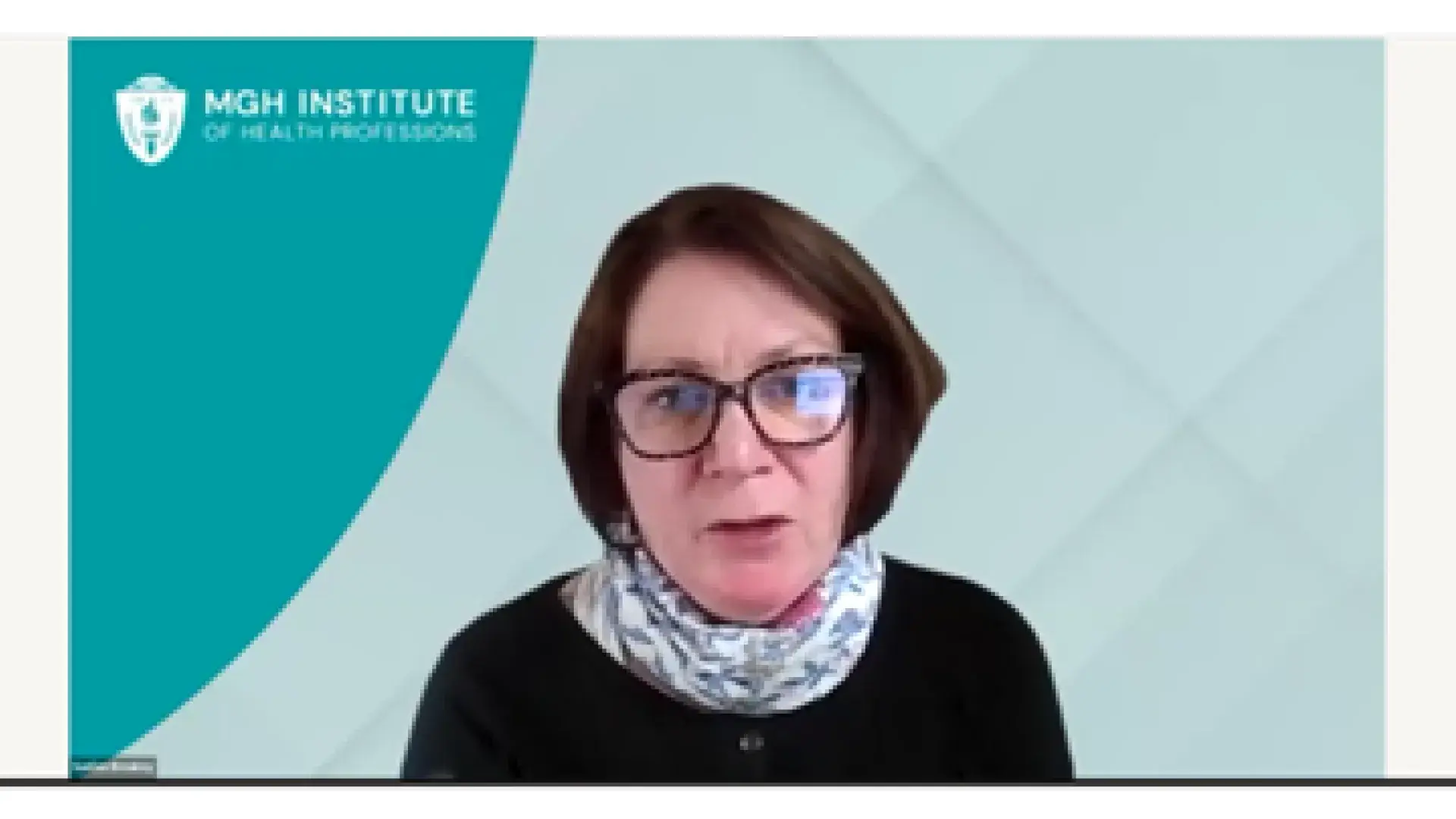
This year’s forum focused on developing interprofessional responses to battle global warming and environmental injustices.
Climate change is a public health and health equity crisis. The MGH Institute’s Center for Climate Change, Climate Justice, and Health, situated within the School of Nursing, continued its efforts to develop solutions and engage health professionals to address this issue at its webinar on May 20.
More than 300 IHP faculty, staff, students, and alumni along with health practitioners from around the globe, attended the hybrid event, Climate Change & Health Equity 2024: MGH Institute of Health Professions’ Interprofessional Response.
The webinar focused on how to develop an interprofessional response to battle climate change and environmental injustices by practitioners from across the healthcare spectrum.
At the heart of the problem is the confluence of climate change, structural racism, and environmental injustice, a condition known as a syndemic. According to Dr. Suellen Breakey, associate director of the climate center, data clearly shows climate-caused illnesses continue to grow, especially among at-risk populations.
“The National Institutes of Health have realized that climate change and its impact on human health is something that we need to study more,” Breakey told the audience, noting that the nursing school continues to integrate the issue within its programs’ curricula. “This really speaks to the intersectionality between the negative climate-related impacts and the social, behavioral, and environmental determinants of health, and their impacts specifically on environmental justice communities—specifically historically marginalized and low-income communities. They are inextricably linked and solutions must take into consideration all of these aspects.”
Rosemary Caron, dean of the IHP’s School of Healthcare Leadership, told the attendees that climate change and social justice health issues have become a key ingredient in healthcare leadership programs.
“This is not something to be concerned about in the future for the next generation – it’s an issue that’s present and is here at a critical level,” Caron said, noting the World Health Organization says climate change is one of, if not the greatest, challenge of the 21st Century. “We’re seeing diseases like Zika virus that we shouldn’t be encountering in the U.S., but climate change has brought it here. And healthcare professionals need to be aware of this and other illnesses caused by climate change so they can not only treat cases but assist in educating the community about preventive measures.”
Martha McKean, a faculty instructor in the IHP’s Physician Assistant studies program, spoke on the importance of education when it comes to creating an interprofessional response.
“Climate change needs to be woven into the curriculum in all healthcare education,” said McKean, who also is an emergency medicine PA at Cambridge Health Alliance in Everett. “As we prepare our students for what the real world will look like in their respective fields, we focus heavily on our goals to provide comprehensive didactic teaching. Because of this, climate change is often viewed as secondary and not as a priority topic. We can change this.”
Kathy Sabo, director of the IHP’s Ruth Sleeper Nursing Center for Clinical Education and Wellness, said faculty integrate environmental and social justice issues that students can apply when working with clients.
She noted that students travel across greater Boston in a mobile van acquired as part of a $3.1 million grant from the U.S. Department of Health and Human Services’ Health Resources and Service Administration. The grant is focused on integrating curricular content and experiential learning opportunities to ensure that future clinicians have the knowledge, skills, and abilities necessary to care for individuals and communities and to increase individual and community resilience through education and awareness particularly in low income and historically marginalized, environmental justice communities who bear a disproportionate burden of climate-related impacts.
“Most urban heat islands are located within environmental justice communities,” said Sabo, noting that students use heat-related illness and climate assessment tools as teaching aids that allow individuals to understand their specific climate change-related risks. “So being mobile gives our students a unique opportunity to visit these communities and work first-hand with these residents. It gives them a wonderful opportunity to teach prevention as well as recognize and diagnose climate-related illnesses.”
Student panelists were asked to share a picture that illustrated their unique perspective related to both climate change and their experience working with community members. Seven students presented on a panel, “Seeds of Change: Student-led Interventions to Mitigate Climate Change Consequences and Foster Health Equity” panel. Their efforts ranged from teaching prevention around climate-related illnesses to youngsters at Harvard-Kent Elementary School and the Chelsea Boys & Girls Club to learning more about the organizing efforts of Chelsea’s non-profit Green Roots to try stopping the installation of a new substation in a section of East Boston that’s prone to flooding.
“It enhanced my knowledge because I did not know what was going on in these communities,” said Master of Science in Nursing student Ricky Cruz, who worked with the non-profit. “So, it got into interventions of where I see myself and how I show up right now as a nurse but in the future as a psychiatric NP to work with community CBO’s [community-based organizations] because sometimes in practice we become so siloed in what you do. It’s very important that we collaborate with them so you can continue being a change agent for the community that you serve.”
Fellow nursing students Jail Huang, Jean Pollard, and Yasmiri Rosario also presented, as did entry-level Doctor of Occupational Therapy students Ashley Long and Jane Lam Lok Ching and Lisa O’Brien, who is studying in the PhD in Health Professions Education program.
“While we still have a lot of work ahead of us, today’s students are the evidence that an interprofessional approach is vital to combatting climate change and environmental injustice,” said Breakey.
Do you have a story the Office of Strategic Communications should know about? If so, let us know.
